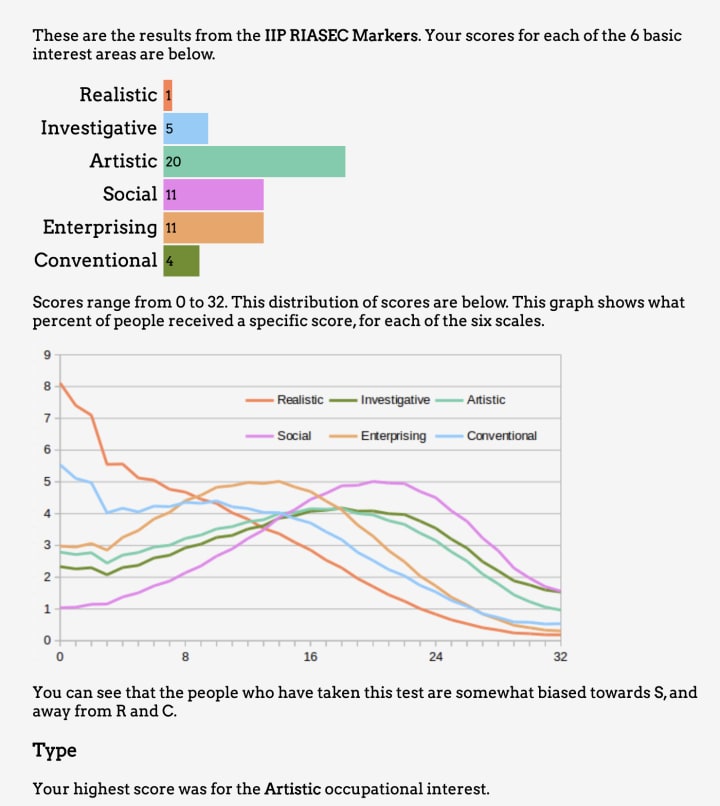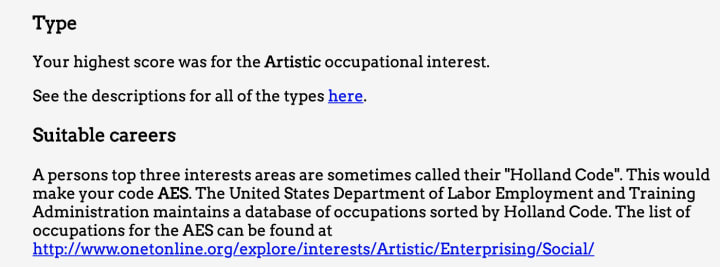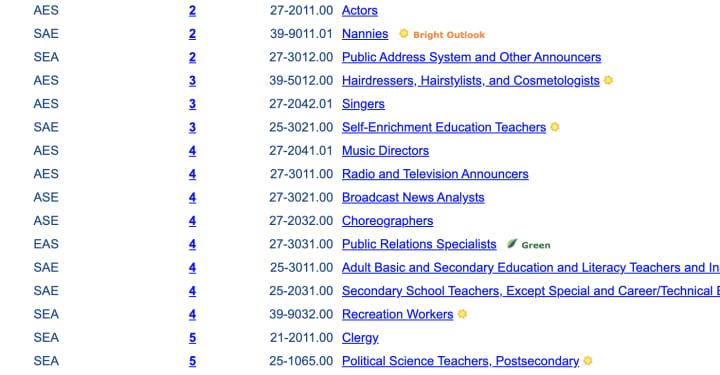
According to studybreaks.com, 20 to 50 percent of all college students enter their first year as undeclared/undecided. I am one of those people and have been struggling with choosing what major I want to pursue.
At my school, it was required for me to take a course designed to assist in making this possible life changing decision. There is much frustration in always hearing the question "what is your major of interest?" in a class or in modules designed for students who do not have a major of interest. Many students enter as Undecided but actually do have a major in mind, but many do not. I am one of those people with no major of interest, with no subject of interest, and no clue as to what I want the rest of my life to entail.
Although it feels like I need to rush to make this difficult choice, the class has offered tips to help with learning about possible areas of interests.
It is okay if you make the wrong choice.
With choosing a major, it is important to keep in mind that it is likely to change if you have a shift of interests, and that is okay. Around 75% of students change their major at least once before graduation according to studybreaks.com. The decision that is made regarding your major is very likely to change and that is normal.
Your major should reflect a subject you not only excel at, but are also passionate about.
Being good at a certain activity does not always mean you find it enjoyable, and you want to make sure that your future job will make you happy and allow you to feel fulfilled and satisfied with what your job entails. Finding a passion and doing a job that revolves around that passion is going to cause you to feel happier at your job. It's always easier and more enjoyable to do something that you like rather than something you do not. Choosing a job that forces you to something you don't like will make you feel more dissatisfied with your life in general.
It's easier to give in and do something that you're good at, but finding something you are passionate about and working to improve those abilities needed will allow you to feel like you earned that job and worked hard to do something you also love.
Don't give in to the ease unless what you're good at is also a passion of yours.
Some resources that might help
The Holland Code
There are (easy) assessments that could help you make this decision. The first is the Holland Code Test. This test determines what type of job you would most likely prefer out of the following six choices: realistic, investigative, artistic, enterprising, conventional, and social.
Realistic jobs are jobs that require you to use your hands, like a mechanic, policeman, craftsman, etc.
Investigative jobs require thinking, like a doctor, researcher, historian, etc.
Artistic jobs require creativity and include jobs like Artist, Actors, Designers, etc.
Enterprising jobs are jobs for people who like to persuade and lead others and this includes jobs like Entrepreneur, Marketer, Lawyer, etc.
Conventional jobs require dealing with data and include activities that follow routines and procedures. These jobs include things like analyst, bookkeepers, clerks, etc.
Finally, there are social jobs. Social jobs include jobs like teachers, nurses, therapists, and more that have a focus on helping others.
With these results, it will show you types of jobs that would be the best fit. Here is an example of my results:


Based on these results, it is evident that I would prefer an Artistic type of job, and that my Holland Code is AES. This site takes you to a list of possible careers that would fall under your Holland Code. Here were mine:

Although this list consists of jobs that I am not interested in pursuing, like being a nanny and hairdressing, it is a good list of jobs that I would have potential in pursuing.
Overall, the Holland Code can help give you a general idea of what type of job you'd be the happiest with, and even if the list of occupations seems incorrect or surprising, it could be a helpful resource in making the dreaded decision of what your future career should be. If you missed it before, here is the link to this test: https://openpsychometrics.org/tests/RIASEC/
MBTI
Although there has been some controversy regarding how accurate the MBTI test is, it can still give a general idea of who you are as a person. Yes, this is a personality test, but its results can also tell you certain things that can be interpreted into certain job qualities.
If you don't know what the MBTI test is or want to take it, you can take it here. This test determines how the test takers perceive the world and make decisions.

For example, here are my results, ISFP-T. On the left, you can see that there are options to look into certain aspects of the personality type that you got.
For the sake of this article, I am going to look at the strengths and weaknesses. The strengths that are under this tab are charming, sensitive to others, imaginative, passionate, curious, and artistic. If we interpret these strengths in my personality to match good qualities of certain professionals, we can determine what jobs could be best for my personality. For instance, imaginative and artistic could suggest jobs that thrive on creativity. Jobs like writing, drawing, or even advertising. Advertising would also work well with charming, as advertisers need to be able to persuade their costumers and being charming is a helpful tool to have.
Now, by interpreting the weaknesses, we can rule out some jobs. For example, my weaknesses are fiercely independent, easily stressed, unpredictable, competitive, and a fluctuating self-esteem. These, all being in the weaknesses category, can be interpreted to mean that I would not be good in a job where I had to work super competitively with others, specifically in a field where my fluctuating self-esteem could come into play. This warns me to not become something like a politician or a well known celebrity.
Interpreting your personality could help you determine what types of fields you should avoid and what types of fields would make you happy to be a part of. Having a conflict between your job and your true self could end with dissatisfaction at the job and unhappiness in life.
Ultimately, it's up for you to decide. I am still struggling deciding on a major and I have tried out a lot of resources to help me make this decision. It's okay if you need more time to choose, and it's okay if your major changes during your educational career. Just make sure that your final choice is something that makes you happy, makes you feel fulfilled, and is something you could see yourself doing for the rest of your life. It's even possible that your final decision on what your major is could have nothing to do with your future career, too.
About the Creator
Annie
she/her
I have a small sticker shop on Etsy called DynamiteArtStickers, so if you can, please check that out. The IG for it is @dynamiteart368.






Comments
There are no comments for this story
Be the first to respond and start the conversation.